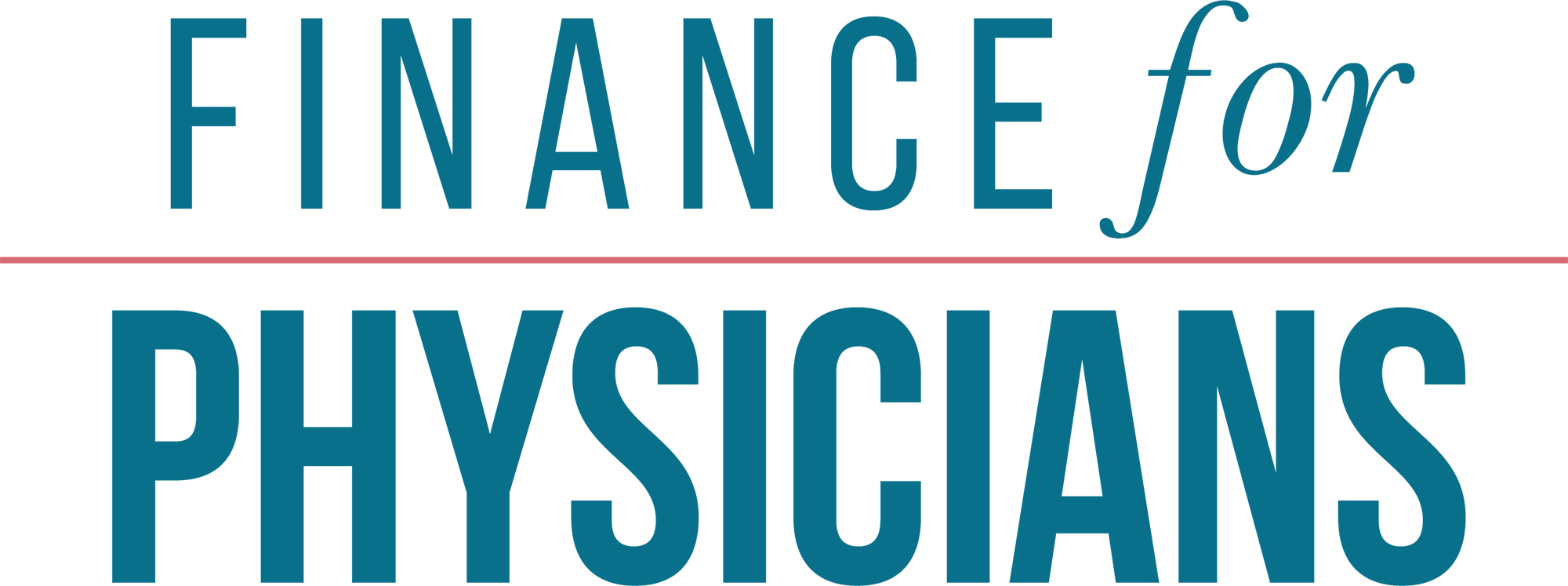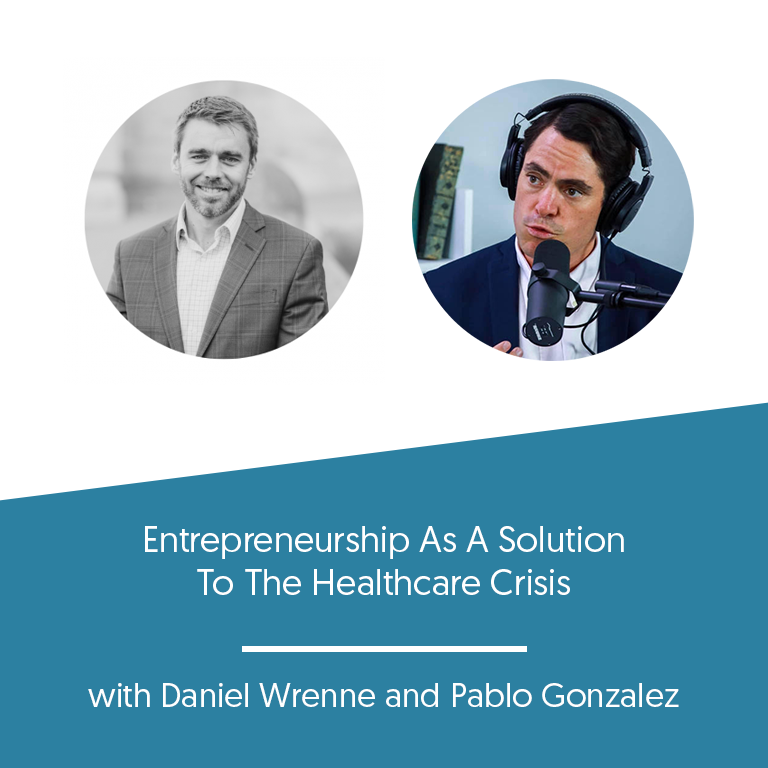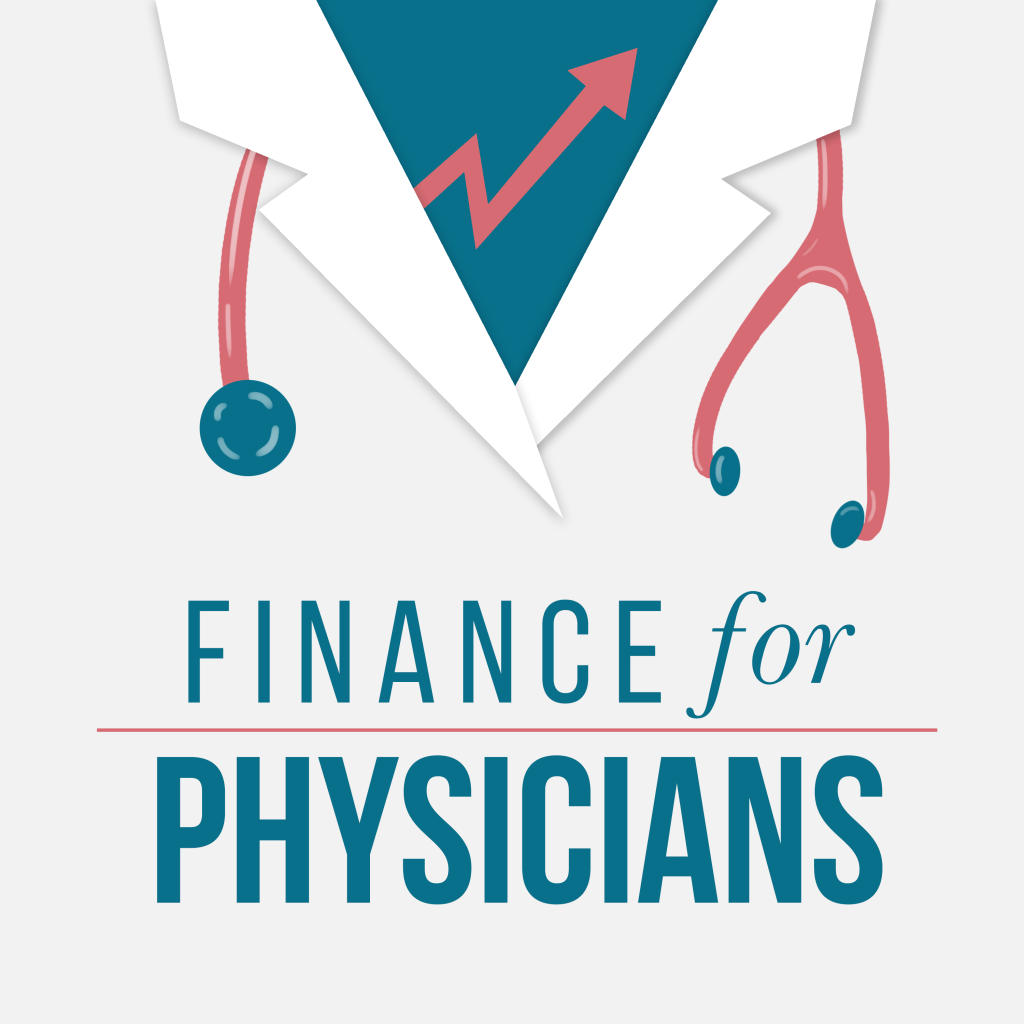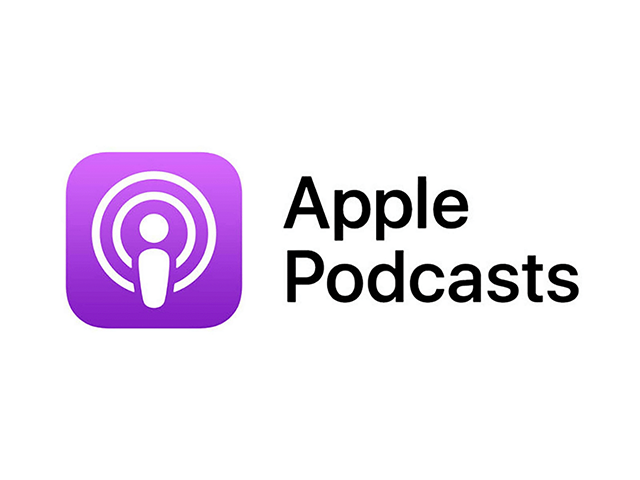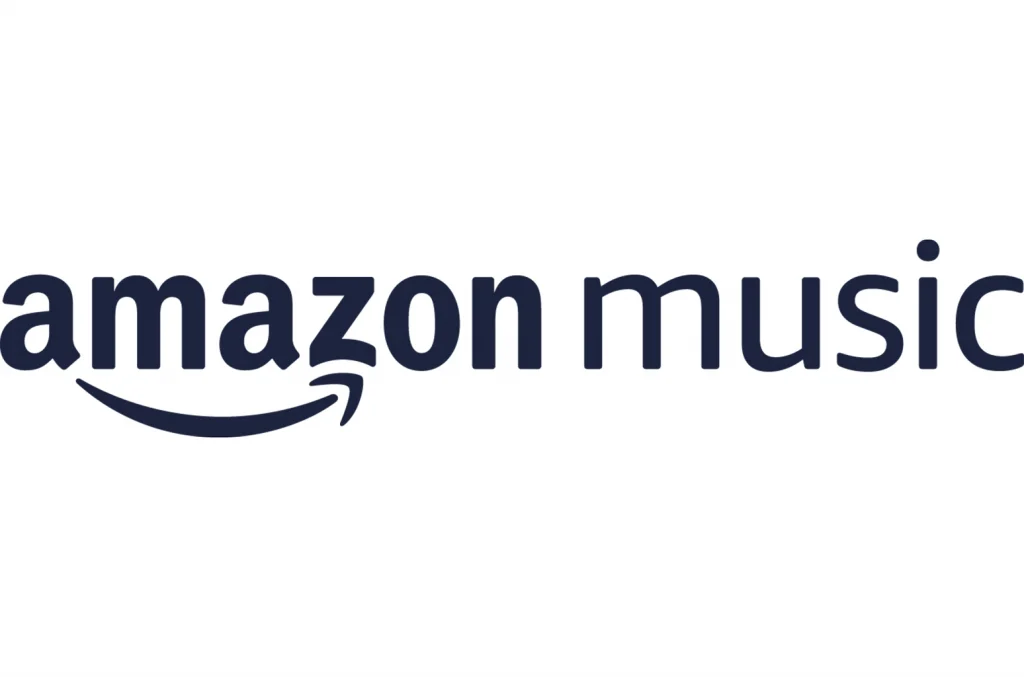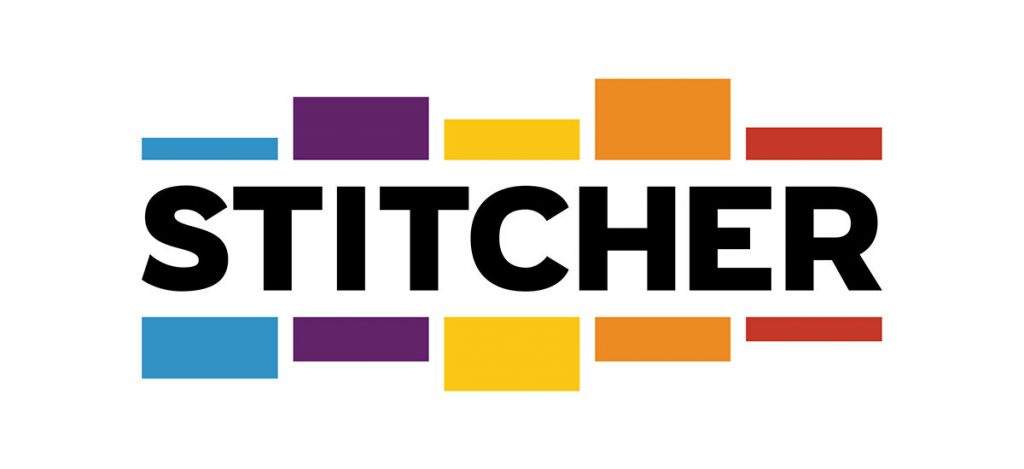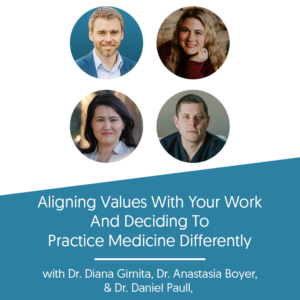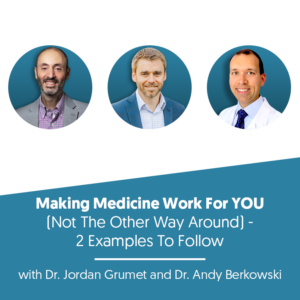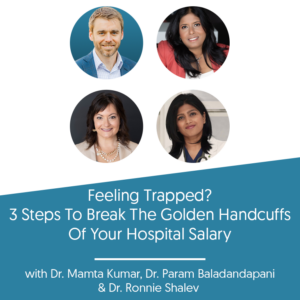The foundations of our country were built through the work of ingenuity and innovation.
The essence of the American spirit is the desire to solve problems.
In other words, the American spirit is entrepreneurship.
Unfortunately, the scale of American entrepreneurialism is still not at the size it can be in our industry: healthcare.
Whether it’s because of conservatism, risk or too many gatekeepers, healthcare has a ton of problems to solve with virtually nobody working on them!
This presents a massive opportunity, especially for the huge pool of talent in the field that’s busy in the labs and hospitals.
It’s not that we miss solutions… we need more entrepreneurs!
Our guest today is an example of pinpointing an interesting, major problem and creating a novel and creative solution for it.
Pablo Gonzalez is the founder and CEO of Be The Stage. His company’s thesis is that community is the future of business development and the best tool to remain relevant and profitable in a world run by category-bending, business giants.
Pablo met our co-host Daniel at college and they quickly hit it off. They’ve remained in contact ever since and even worked together to make the Finance For Physicians show the most interesting one in the niche!
If you’re a medical professional with an interesting idea, ready to propose it to the market, this episode will cover…
– Category Design 101 & how to apply it to your life.
– How to niche down and create a unique mould of opportunities for you as a medical professional.
– How to create a category from scratch and capture 70% of the market.
And much more! Enjoy!
Links:
Connect with Pablo: LinkedIn or Instagram
Contact Finance for Physicians
Full Episode Transcript:
Daniel Wrenne: I am looking forward to our conversation today. This is a really important topic to me and I have brought my buddy, Pablo. Pablo, say hello.
Pablo Gonzalez: Hello physician friend that’s listening to us right now.
Daniel Wrenne: Yeah, Pablo is my good buddy. And also a very good sounding board. We’re gonna talk about a really important topic that has been on my mind.
Daniel Wrenne: It’s kind of like a theme that has been emerging from my conversations with different physicians and influencers in this space. And I think it’s really an important topic and it kind of revolves around some of these challenges that I’m seeing. And I think it really can be a great solution to help you guys listening through some of these challenges.
Daniel Wrenne: So I’m looking forward to kind of talking through this with you guys and sharing what I’ve learned and hopefully turning it into something that can add value for you guys and your friends and even other people in the form of speaking engagements and that sort of thing.
Daniel Wrenne: So, Pablo, you wanna jump into this?
Pablo Gonzalez: I’m dying to jump into this, Daniel man. I’ve always, from the moment that you and I started talking business, I’ve been really impressed with your level of insight gathering. I think we were just talking about this in another context, right? You’re really good at gathering insights and specifically the idea that you work with so many physicians and you have this platform and all your, you know, your whole social circle and so many, such a large percentage of your interactions are with physicians. And I’ve been seeing you grow this opinion, this point of view about what’s hurting them out there.
Pablo Gonzalez: And what’s wrong with what’s going on and how you can really help ’em.
Pablo Gonzalez: I’m really pumped to bring this forth. I think we just kind of cut to the chase here, man. What’s the state of order right now in medicine that you’ve been kind of railing to me about so far, ever since we started talking about this stuff?
Daniel Wrenne: Yeah. As a physician, it’s such a challenging position to be in because you train for so long and develop this skillset and become an expert and have all these skills and this knowledge and this expertise, and then you go into this system of medicine and it’s really it kind of like takes a lot out of you and it’s not all you expected and it almost becomes like a dread to go to work. Doing it.
Daniel Wrenne: And it’s weird because it’s doing something that you love and you have this expertise and you’ve spent so much time in it. It’s like you’re getting burned out of this thing that you love in this system that is just really squeezing you. So it’s an interesting challenge because it’s like you’re doing something you love and you’re following your skillset, and yet you are getting fried.
Pablo Gonzalez: Yeah. Yeah. That’s when you first started talking to me about this, it sounded, the first word that comes to my mind is tragic, right? This idea that they’ve invested so much of their life into acquiring this skillset, into this love for others. What do you think is the problem?
Pablo Gonzalez: Is it the work itself? What’s the problem? Do you think that’s driving this level of burnout and this level of dread that you’re seeing?
Daniel Wrenne: Yeah. Well first of all, it is not the physicians. I don’t think physicians are the problem. I think you guys are the solution.
Daniel Wrenne: I think the problem is the healthcare system. The healthcare system is a train wreck. It’s got, there’s so many conflicts of interest and when I say the healthcare system, like the hospital systems, the insurance companies. The way that it all works, the bureaucracy it just kind of like squeezes all the control out of physicians to the point where they’re kind of like a cog in the wheel. They’re like a high paid cog in the wheel, and that is just draining to be working in a system that gives you no autonomy to do something you know. And your heart is like the right thing to do, to not be able to do that.
Daniel Wrenne: It’s just like mind numbing. It like makes you just a crazy person. I mean, I think of that, imagine that, imagine doing something that you know is the right thing to do for the patient and this system like doesn’t allow you to do it.
Pablo Gonzalez: Yeah. Autonomy, man. Autonomy is one of these things. It’s almost like our country is based on it, right?
Pablo Gonzalez: Like we’re in the United States, we are the standard bearers of freedom and physicians are some of our smartest, most talented, most dedicated, most serving people. And this idea that they feel trapped into being told what to do, just immediately kind of like makes my kind of hair stand up on the back of my neck.
Pablo Gonzalez: I know for me that, what that would do for me. We’ve talked a lot about burnout, right? But what do you think are the consequences of this lack of autonomy. What is this? How does this being manifested in their lives and in our healthcare system?
Daniel Wrenne: Yeah. I think it results in, of course, burnout. But poor, you know, your mental health, it hurts your mental health, it hurts your confidence. It really in a lot of ways, like it causes this cognitive dissonance. It’s like you’re working in a thing you don’t love, it kind of doesn’t make sense, but yet you have to do it to kind of make a living.
Daniel Wrenne: So that messes with your mind when you’re doing something you know you shouldn’t be doing. That’s a challenge. I think what the ultimate consequence of this is it’s driving physicians into alternative, really, they want relief from it. And so what we’re seeing most commonly is that it’s driving them to things like financial independence, retire early. Like work as hard as they can to get out as fast as they can or side gigs or passive income.
Daniel Wrenne: You know, basically as relief to kind of get away.
Pablo Gonzalez: What’s the problem with that? What’s the problem with them pursuing this, like retire early or pursuing side gigs and stuff like that?
Daniel Wrenne: The problem is that it’s without realizing it, it’s pushing you more, especially like all of these really, but fire. Fire’s such a good example.
Daniel Wrenne: It’s like the classic way to do fire is to work really hard. Like push it extra hard in your profession to earn as much as possible and live at as modest to means as possible to retire as fast as possible. But what happens is you’re working more in the thing that you hate. And it’s s draining you.
Daniel Wrenne: So it’s amplifying this whole problem of the healthcare system, like sucking everything out of you. Same sort of thing with the other side gigs and then passive income. You’re spreading yourself thin, you’re working more, it’s pulling you away from really being able to do the things that are most important.
Daniel Wrenne: I think that’s also important to point out when it’s rare that I hear physicians say that their work is their most important thing in life. You know, usually it’s important, but a lot of times people will say something like family. And so the more you do things like this, it’s gonna pull you away from those things like family or traveling. And that’s the things that you use to recharge your batteries.
Daniel Wrenne: You gotta have that time away.
Pablo Gonzalez: Man, I hadn’t even thought about that. You know, me as a quasi workaholic, I was just thinking about this idea that I wouldn’t want to not love my work, but this idea that these other solutions, rthese other, the presumed solutions for having more control and being able to call your own shots is actually not just taking you away from the work that you love, but taking you away from the actual whys, right.
Pablo Gonzalez: Like the actual priorities by taking a super demanding schedule and then adding more hours beyond that schedule. That pulls you away from the nourishing things.
Daniel Wrenne: And it’s not solving the problem.
Daniel Wrenne: It’s the problem still there. Like the problem is the healthcare system doesn’t give you any autonomy. That’s a big problem, for example.
Pablo Gonzalez: And can you gimme an example of that?
Daniel Wrenne: Insurance companies directing care is one example. That is like scary by the way. But it’s happening and that’s like basically control getting taken away from physicians. Or hospitals demanding to see more patients. Squeezing the time there. So it’s basically limiting the amount of interaction you can have with the patient to the point where you basically have no options.
Daniel Wrenne: Or there’s problems you have with EMR and you bring ’em up and it’s like not listening. It’s like you’re powerless to make changes or do healthcare the way you know you need to it.
Pablo Gonzalez: Yeah, man. As I literally just left my doctor’s office before this. And you know, as a patient it was really hard for us to find a doctor that would spend 40 minutes going over numbers and results and looking at real things with me. And I think about what you’re saying and it’s terrifying, right?
Pablo Gonzalez: It’s terrifying as the consumer of the service, this idea that, you’re treated like a restaurant table that needs to turn or a car shop that’s just like, no, you gotta move the units, right? You gotta spend less time with a patient that makes me feel like I’m getting less care.
Pablo Gonzalez: Probably feels bad on, you know, what you’re expressing, it feels bad on the physician themselves that they’re not providing their best level of service. It sounds like a dangerous situation for everybody involved.
Daniel Wrenne: Yeah, I mean, that’s not good for health. That’s not good for the patient for sure. And the physicians know it.
Daniel Wrenne: I mean, we hear people share stories of interactions where it’s like they’re questioning whether it was the best interest of the patient in some cases, is for sure not in their best interest. And it’s because the control is now kind of in the hands of the big system of healthcare, like the insurance companies and the hospital systems and the executives that have no idea how the healthcare works, like telling you what to do.
Daniel Wrenne: That’s extremely frustrating when a healthcare executive comes up to you and they have no medical training, and they’re like, “You need to do your blah, blah, blah this way.”
Daniel Wrenne: It’s like, no. I’ve trained for years and years and blood, sweat, and tears and poured into it, and you’re telling me I need to do it this way? And you have no idea what you’re talking about. And it’s all about the money.
Pablo Gonzalez: Yeah, that’s rough. I have to imagine that while this is a very interesting thing for me, I have to imagine that our physician friend that’s listening to us is either like, “Duh, I know this.” Or we’re giving them like extreme anxiety talking about this.
Pablo Gonzalez: But, but..
Daniel Wrenne: I’m sorry.
Pablo Gonzalez: Yeah. But what they came for, right. I think the purpose of this thing is that you think that there’s a better way, right? This is what you’ve been kind of sharing with me, that I’ve been encouraging you to like put it out there. In your sample size, what do you see is everybody miserable? Are there people that are happy? What are you getting breadcrumbs into?
Daniel Wrenne: Yeah. Yes, there is a better way. There are people that are happy. And I think really entrepreneurship is in my mind the best solution to all of this. And entrepreneurship if we explore, if we kind of take a step back and say like, what is entrepreneurship really? Entrepreneurship is, you’re helping to solve problems. I mean, that’s really what the purpose of it is, you’re creating new things that solve problems in the world.
Daniel Wrenne: And so my interactions with people that are doing healthcare a different way in the form, and usually they’re entrepreneurs. They’re kind of like charting a new course, trailblazers, doing healthcare a different way. And direct care is my favorite example of that. They’re loving life if you have ever interacted. And when I say direct care, I mean patient pays doctor and care is provided.
Daniel Wrenne: Like there’s a simple direct relationship with the patient and the healthcare provider, and we’ve cut out all that mess, like the system I was just describing. We kind of sidestep all of that. And I think that’s part of the reason it’s such a good solution. But if you interact with people that are running businesses in that model, they’re typically, they love talking about it.
Daniel Wrenne: They won’t shut up about it. I mean, cuz they’re so excited about it. And burnout is not their radar. They have stress. But the normal stresses of. And it’s in things that they can solve, which is completely different. Like when you’re stressed out in a system that you know you can’t solve the problem, you have no control over it, that’s depressing.
Daniel Wrenne: Like that turns into depression. But when you’re stressed out in a business where you have the ability to make decisions that actually get implemented. That’s amazing.
Pablo Gonzalez: Yeah, man. I don’t know why, but my head goes to this idea of being like Trapped somewhere tortured. The stress of being trapped somewhere and tortured versus like being on like an epic journey that you know is hard, but it’s going somewhere cool, right?
Pablo Gonzalez: Like running a marathon or like climbing a mountain or something like that. Right? Like it’s very different pain.
Daniel Wrenne: Very different.
Pablo Gonzalez: Yeah. Yeah. That makes sense man. So, alright. So then tell me a little bit more about this, right? So when I hear entrepreneurship, my uneducated brain is okay private practice, right?
Pablo Gonzalez: That’s a form of entrepreneurship, right? Okay. And then, but there’s another, you’re saying that there’s another kind of level, right? Are there a couple of different levels? Is it stratified between, once you leave the system and go open up your own office, but you’re still in the system, you’re a little bit happier, but then the next level is to then cut the system out and go. Is that part of it?
Daniel Wrenne: There’s all kinds of variations in.. We could probably spend hours like talking about the different models. But I think the options are unlimited. That’s the cool thing about entrepreneurship is you can create whatever you want. I mean, if you’re deciding to chart a new course, like you can design whatever you want. You can also go work for an entrepreneur in their practice.
Daniel Wrenne: Also, that’s another option. You don’t have to be an entrepreneur. That’s is not for everybody. You can find people that are charting a course in solving the problem. That’s such a nice place to be when you’re working with somebody. That is vested in solving the problems instead of just being like, “Yeah, yeah, yeah. I hear you. I hear you. We’re not doing anything.”
Daniel Wrenne: It’s a nice place to be working. And then, so there’s options to work for entrepreneurs. There’s options. And so the most pure form in my view of this is where, like I described earlier, like direct care. I feel like that’s the most pure form of providing healthcare.
Daniel Wrenne: And I know there’s limitations to it, like not everybody can afford to pay a physician. And then certain types of healthcare are so costly and can cause problems in that system.
Daniel Wrenne: But for the vast majority of your typical primary care is the easy, most simple example. Like primary care, you’re going to have visits. And it’s almost like the way it used to be done back in the day when you had your local physician that you walked in and you had a visit and then you paid him.
Daniel Wrenne: I mean, it was not that complicated and it was much more pure.
Pablo Gonzalez: That’s a really good distinction, man, right? Like this idea that it’s, I would imagine that if I’m listening to this right now and I’m being told you gotta go start your own business, it’s pretty daunting. But there is a midway step. There is this idea of go work for someone that started their own business. Right? And like the difference of, in the corporate world that I’ve been in, right? I’ve experienced it pretty night and day in the sense that at one point, I was working for a founder led construction company that was started ground up by this guy that’s a pillar of the community, really cared about everything that he did.
Pablo Gonzalez: Then he got acquired. And as he phased out and the big corporation phased in, people just started mailing it in, right? Like it was just obvious that all of a sudden we were shackled. No longer could we bring something innovative and have the top person be like, “Yep, we’ll run with it” kind of thing. Very, very different experience, man. Tell me a little bit about, we talked a little bit about why direct care is best for the physician, right? This idea of autonomy. Why is it best for the, would it also be best for the patient?
Daniel Wrenne: Yeah, for sure. No, no doubt. As a patient I don’t know. I mean, I’m sure you guys, a lot of you guys listening physicians, but you know, hopefully you have been the patient too. And you’ve been to the primary care office and you have the wait times, and then there’s, you know, you get 10 minute visits and, they’re kind of rushed. And it’s not, I see the other side of the coin, so I like, understand that it’s not the primary care provider that’s causing the problems necessarily.
Daniel Wrenne: So I have a little bit more sympathy for ’em, but like it is a incredibly frustrating experience as a patient to go wait in the waiting room for 45 minutes and then see the physician for 10 minutes, and then they just either refer you to specialists or something. You know, they’re like, “Go get this test.” Or they’re like, “Ah, you’re fine. Like, why are you here?”
Daniel Wrenne: Or there’s not a lot of, “Tell me how you’re feeling. Let’s talk about..”
Daniel Wrenne: And there’s really no relationship for sure. There’s not a lot of empathy coming from them because the time has gotten so crunched. And so in this model, It basically, you can only serve so many people. So the typical primary care physician has thousands of patients. Whereas in this model, you can get it to a more manageable number and say it’s a few hundred and that setup, you can go back to the basics and spend the time and cut the wait times and all the things that patients want..
Pablo Gonzalez: Sounds like a, sounds like a one man. So, so. What do you think is this, is this something that you are, you are just seeing the sample size out there. Do you get the sense that physicians understand this and wish they could do something different, but something’s holding them back or, you know, like, are you coming up with this?
Pablo Gonzalez: Yeah, I mean, there’s all kinds of fear around making a change. There’s, there’s like fear around going against the grain. It’s like, This is what everybody’s told me is the way it’s gonna be and how it always has been and how it’s gonna be in the future. Like, everybody’s like telling you that over and over.
Pablo Gonzalez: So it’s like w. I can’t, I can’t even imagine like going to do something completely different. People are gonna be like, that’s not gonna work. Like there’s all kinds of this, you know, fear going on. And then on top of that, there’s all kinds of like, fear around your finances. Like it’s a big financial risk cuz that your job pays your bills and you know, so there’s all this pressure you know, to, you’re taking a risk and it can be potentially costly.
Pablo Gonzalez: There’s also a lot of like, financial challenges as we get into finances, like around like getting, you know, lifestyle creep creeping up to where your income is fully accounted for and you don’t have any wiggle room to take the risks. And so you feel kind of like stuck or trapped in a job that you have to work in to pay the bills.
Pablo Gonzalez: And so that’s kind of has its own set of like baggage or like, it’s kinda like the golden handcuff. From, you know, being handcuffed to your job because of your lifestyle. And so there’s a lot of a lot of that, that is a big, big challenge that I think paralyzes most people. Okay.
Pablo Gonzalez: Let’s talk through those, right?
Pablo Gonzalez: So you have, you definitely have folks in your, in your network, in your service. , you know, that, that have done this. What have you seen? Let’s start, let’s start with the first one, right? The, the idea of going against the grain. What do you, what do you see in common with those folks? How, how were they able to like, just rally to, to have that self-confidence to, you know, tell, tell their parents that, yeah, I’ve worked this hard to be a doctor, but now I wanna be a doctor like this.
Pablo Gonzalez: Yeah. And their parents are like, what? ?
Pablo Gonzalez: Yeah. I mean, I, you know, I’m echoing with this as an entrepreneur myself, right. Like I’m, I’m getting a lot outta it. Yeah,
Daniel Wrenne: yeah, yeah. I mean, it takes you know, potentially it takes some personality type where you’re kind of like a trailblazer. Yeah. The early stage people that do this are gonna have to be trailblazers.
Daniel Wrenne: Like, I don’t think. This is for everyone. And so I think the first, and maybe we’ve already already gotten to that point where the trailblazers have kind of like blazed the trail cuz there’s enough people doing it. But to be the first guy that does it, when everybody’s like, you’re crazy. You have to have like, Screw loose a little bit.
Daniel Wrenne: Like yeah, you gotta be a risk taker. Irrational
Pablo Gonzalez: confidence, right? Yeah.
Daniel Wrenne: Right. . So that’s not for everybody, but I think I, I really think we’re past that cuz there’s a lot of like examples and models and things, you know, you can, it’s not to the point where it’s like a ridiculous risk yeah. Anymore. So, I think it’s involves.
Daniel Wrenne: Education is part of it, like educating yourself around like what it could look like your community, like who you associate with. You’re gonna be the averager of five best friends. So if you’re hanging out with a bunch of like, negative Nancy’s that work a hundred hours a week, like that’s what you are.
Daniel Wrenne: Yeah. So change your friends if you want to change you know, as, as harsh as that sounds. But, but you are so community I think is important. Educating yourself is important. And then, you know, investing in yourself is always important. Like just sometimes it’s just a matter of like, you know, doing some, you know, self work on, you know, maybe it’s even like therapy or coaching or, or those sorts of things.
Daniel Wrenne: Like to cuz a, you know, a business coach that’s, that’s kind of a new concept in, in the physician circles, but like a physician coach or a life coach. They’re fantastic. Like they can pump you up. Like I’ve worked with many coaches and a good coach will like pump you up and get you like, excited and you can run through a brick wall, you know?
Daniel Wrenne: Yeah. Okay. And you can hire people that will, you know, help you through those challenges.
Pablo Gonzalez: I love it, man. I love, I love the fact that that seems, it feels like a lot of. Is stuff that you can really help with with this podcast, right? This idea, like the education. How do we get other primary care not primary care direct care physicians on this, on this show to like, talk about the blueprint, right?
Pablo Gonzalez: Like, talk about the ways that they did it. How do we, how do we surround. The listener or friend that’s listening right now, right? Like if, yeah, it’s a little harsh to change friends, but I, I, I, I found that when I was making my jump into entrepreneurship or what I’m doing, just having the right message in my ear, right?
Pablo Gonzalez: Like, cuz I was, I was listening to like a lot of Gary v kind of thing and just like, if you hear it all the time, I think cognitive bias is a really powerful tool. So like the more you’re exposed to the message and the fact that this is real and it exists, the more you’re bound to believe it can really be helped through this podcast.
Pablo Gonzalez: Yeah. and then, and then the, you know, the, the community piece and the access to the, the access to coaches and resources I think is something that you can really help facilitate. So that seems, that seems pretty approachable. the second part of it, the financial kind of like risk side of it. The, the replacing your income risk side of it.
Pablo Gonzalez: Yeah. Talk
Daniel Wrenne: to me about that. Yeah, that’s scary. And. You know, you, you gotta pay the bills and, to take a risk and make a jump. And especially if you’re starting, if you’re like dropping your career in the healthcare system and you’re completely starting something brand new, which is one way to do it, and that’s like the hardcore way to do it, that’s super scary.
Daniel Wrenne: And you just have to, you know, kind of acknowledge the fear and lean into it. I don’t think it’s a bad fear, it’s just money is a tool. And if you, I think part of the reason we get so hung up on the fear around the money is because we’ve gotten into this. Cultural, you know, pool of like money is the end goal.
Daniel Wrenne: Like money makes me happy. Money does not make you happy. Money, all money is, is a tool and it ideally you’re using money to help live a better life. And so when you’re working in a system that’s terrible. And the only reason is for the money. Like I don’t think it’s worth it. Like it’s not, cuz money doesn’t bring happiness and so it’s just gonna be like a miserable life and you’re gonna have money and the money doesn’t bring happiness.
Daniel Wrenne: So like, we got a prop. I think when you can realize that and get this kind Acknowledge the concept that money is more of a tool to follow your values, and the values are what we’re after, like we’re after like the good life and working in a job or creating something that you love or enjoy.
Daniel Wrenne: The value of that is like priceless. It’s like good life and the money will work itself out. Like we don’t, we need to like not be so fearful about the. Sounds like you
Pablo Gonzalez: have a lot of these conversations. Thanks, . So that sounds, that sounds very much mindset wise, right? Like mindset wise, kind of like crossing that chasm of, you know, going internal instead of external for satisfactions and, and, and, and really understanding.
Pablo Gonzalez: You know, when I, when I started getting to know your team and like understanding how you all. Go really hard at values before setting up any kind of financial plan for anybody. That feels like really, really in line with everything that you’ve told me about what works for people. Is there other, are there other.
Pablo Gonzalez: Ways. Is it, is it also a budgeting and discipline thing that, that you have found tools that help for people and things like that? Yeah,
Daniel Wrenne: I mean, values are important and money is a tool and you gotta lean into your values, but you also have to do the numbers too. Like you can’t be all in on values. Right.
Daniel Wrenne: Just like you can’t be all in on numbers only. You gotta do both. And so there’s of course, like all kinds of responsible you know, effective ways to kind of logically go about taking that risk. And, you know, it starts by like living within your means, first of all, like Don. let your lifestyle creep up.
Daniel Wrenne: That’s yet another reason not to let your lifestyle creep way up to what you’re gonna make, what you’re making in practice, ideally you have lots of margin built into your finances and margin is basically just money that’s not, you know, automatically spent. It’s like flexible money, so like having margin in your finances and the higher the percentage that is the better is huge for this kind of thing cuz it gives you like options.
Daniel Wrenne: And having, you know, debt under control, ideally it’s paid off and having control over your budget, like budgeting is not like, no, most people don’t like, love the idea of budgeting, but a budgeting can be pretty motivational when you see it as a tool to. Think of it like this. If, if, what if budgeting could help you to get out of the profession?
Daniel Wrenne: You, you des like the healthcare system is a train, train wreck and you despise it. Like what if the budget could help you be, what was the source of, of getting you out of that system and into another thing? And it can be really, especially if you’re fearful about the money, and especially if you’re, you know, your lifestyle has creeped up.
Daniel Wrenne: You can use the budget. The budget is the tool to, to kind of like zero in on that and say, okay, what do we need to cut? Like, what do I need to what do I need to trim my lifestyle to, down to so that I can make this thing work? And, and then really at the end of the day, it comes down to a business plan or, you know, on the, on the logic side, on the, on the number side.
Daniel Wrenne: You know, you can chart out your business plan and. Map out like, Hey, you know, I’m gonna have financing, I’m gonna have cash, I’m gonna have whatever, so that I can make this thing roll for at least a couple years and get it to a point where it can work and like, and then that’s plenty of time to get this thing going.
Daniel Wrenne: So it’s not, that part is very logical, numbers oriented, and I have complete confidence in everybody listening. Like that’s, that’s very doable. And. I’m not gonna say easy, but it’s, it’s relatively simple. The, typically the challenge is like the emotional side. Yeah. And the fear of taking the risk.
Pablo Gonzalez: Yeah. It’s funny, man. As you’re, as you’re describing this whole thing, I dunno why my head goes into seeing a physician, like, as like a, like a warrior fighting through this like system. And it’s like the budget is the shield and the business plan is the sword, right? Like you’re, you’re like protecting yourself from the lifestyle creep with the budget and you’re using this like plan that you help people with to like, to fight through and get to where exactly where you gotta be.
Pablo Gonzalez: What about the, what about the idea of. You know, what of your, the, the physicians in your network that have already that, that have taken this leap? Any kind of like, insights from them of, I, I would assume that as a physician starting a business, you’re probably gonna do pretty well with an SBA loan or like financing and things like that, that can kind of like take a little bit of fear.
Pablo Gonzalez: Away from that. Away from that or, or am I or am I off there?
Daniel Wrenne: Yeah. I mean, financing as a physician, you a, you are a very, low risk loan like lenders. We definitely discriminate by profession like they’re, you know, they’re gonna understand your financial, they want to know your financial potential.
Daniel Wrenne: And they know if they’re like this, this person is a physician trained They’re gonna be more favorable towards loaning money. That’s why the doctor loan, physician loan mortgage is a big thing, is like, lenders are like, sure you’re, every physician pays it back. It’s no problem. Yeah. And so as a physician it’s generally Easier to get to to get loans.
Daniel Wrenne: Now, student loans are a big stressor for physicians cuz they are, you know, oftentimes early in practice, they already have these additional loans that most people don’t have. And so the good news about student loans is they are, you know, income based payments. So there’s a lot of flexibility on those. I mean, ideally you have them paid off, that’d be great, but I don’t think you have to have your student loans paid off to be.
Daniel Wrenne: D doing something like entrepreneurship. Interesting. And I think that’s a misconception. A lot of people say, you gotta be, you gotta at least pay off the student loans and then maybe we’ll talk about it. , but like, no, that’s takes too long. Like, let’s get this thing going. If you really believe, I mean, if it’s, if it’s something you have a passion for, like the student loans don’t have to hold you back like you can look at Dennis.
Daniel Wrenne: Dennis are a great example of that. Like dentists are very entrepreneurial. That’s just kind of built into that profession. Most dentists own their practices and run them, and they also have student loans and they, you know, work through it and they’re. Makes sense. Makes
Pablo Gonzalez: sense. I mean, it makes sense that as a physician you’re a low risk loan.
Pablo Gonzalez: Cause I would assume if I’m lending somebody money, I’m like, well, he is gonna go take a swing at entrepreneurship. But I’m pretty sure if they get into too much trouble, they can just go back to being a doctor and make a ton of money. . Right? Yeah. I mean, but that’s a, that’s an interesting point about the dentist man, cuz I, I, I feel like the dentists are like a one-to-one example of.
Pablo Gonzalez: You know, there isn’t this giant industrial insurance system built up around them, or like a big, you know, healthcare systems that are telling them what to do. So they’re, and, but they have very similar loans and they gotta go fight through it and go direct to consumer, which is another macro business trend that we’re basically just talking about right now.
Pablo Gonzalez: Right. Why, why shouldn’t healthcare go direct to consumer and cut out the middle man? Just like, just like every other profession. Right? It’s not like, it’s not that doctors aren’t smart enough to do that, right? Like they’re some of the smartest
Daniel Wrenne: people out. Yeah, it’s a good move.
Pablo Gonzalez: Yeah. Yeah. That’s interesting, man.
Pablo Gonzalez: What about, what about the idea of What about that halfway step that we talked about, man, this idea of like, maybe you can just go work for another direct care physician. Do you find that the clients in your network are, are hiring? I mean, is it, what does that look like? What is, what is going and get a j got a job at a direct care physician?
Pablo Gonzalez: Is there nuance to that? Do you have to bring patients to the table with you? Is there something else to think about there?
Daniel Wrenne: I think. There are plenty of jobs in that space. I don’t know if there, there’s, there’s not as many as the traditional model, like obviously because the traditional model is so big, there’s all kinds of jobs for, in the traditional model.
Daniel Wrenne: But there are plenty of jobs in this, like, new model of doing healthcare. In fact, I was just speaking with clients I work with like yesterday or the day before, and they just hired a new physician in their in, in their direct model. And so they’re, and you just have to go and find them though.
Daniel Wrenne: Like it’s not, it’s not gonna come find you. You gotta go get out and look for it. And particularly like that specific type of position. And, but they’re out there. You might have to move even if, especially if you wanna go work for somebody. A lot of people are like, well, you know, there’s only so much demand for it, and I don’t think there’s enough demand to make it really work.
Daniel Wrenne: In my experience, the. people I work with are all maxed out, like in the dir direct primary care. Like they’re, they’re wait listed. They’re like, there’s plenty of people that want, want it. And I think, I do not think that they’re, I think there’s a shortage of physicians in that space too. Yeah. And it’s developed really quickly as a subset because cuz patients are frustrated too.
Daniel Wrenne: They’re like, I, I hon, you know, I’m in that same boat. I’m like, I, I need, I. do not want to go to a traditional primary care physician really ever again sense? No,
Pablo Gonzalez: neither do we by the way. Like we’ve, we’ve, we’ve, we no longer go to traditional physicians either, right? Like, cuz we’ve learned the hard way.
Pablo Gonzalez: Yeah. Right. It’s interesting, man. I think about when you say that, I think about first thing, you know, the, the entrepreneur is like opportunity. If you like, start the job board for this thing and or the referral network for like, who’s got overlap. You have this many patients. There’s a market right here in Louisville or in Boston or whatever.
Pablo Gonzalez: Of this many overlaps. That sounds like an
Daniel Wrenne: interesting, yeah, there’s all kinds of, that’s the entrepreneurial mind going in ya like, Pablo’s a natural entrepreneur and you know, I’m sure some of you listening are, but like, that’s the cool thing about it, is you, you don’t have to do like a practice like this.
Daniel Wrenne: You could be a service provider for them. Like I, I particularly, I know of a physician that is doing that. Like she’s doing recruiting for direct care practices. Interesting. And like connecting. And so that’s like kind of her side hustle now. And, and she’s also a direct care physician herself. So, there’s, there’s all these industries that are gonna kind of become new or, you know, they’re gonna kind of.
Daniel Wrenne: Yeah, be created over time to support the, the new industry or the new model of healthcare. I think in,
Pablo Gonzalez: in, in my world, we call that new categories create new categories, right? That’s exactly right. That’s it. The other thing that it makes me think of is I have to assume that the macro trend of.
Pablo Gonzalez: Digital health, right? Like telehealth and, and, and technology enabling this stuff is gonna make this easier and easier as time goes on for the direct care physician. And you know, like there’s gonna be whatever, whatever you have to like, trudge through right now in back office. Right now, there’s gonna be a technology that solves for that, right?
Pablo Gonzalez: So like, getting in early, right? Like you’re not a, you’re not exactly a trailblazer right now cuz people have done it. The person with a screw loose has already gone. And you can follow that and you can follow that roadmap, but you can get in early enough to just like really understand the game. So while the ecosystem develops around it, it’s gonna become more and more profitable and more and more doable, right?
Pablo Gonzalez: Like somebody’s gonna figure out the. Insurance program for it, right? Like the group purchase discount of something like that, that’s gonna, that’s gonna
Daniel Wrenne: create more market. Right? Right. And yeah, they’ll, they’ll figure out solutions we don’t even know exist right now. I saw a stat on LinkedIn the other day.
Daniel Wrenne: Somebody posted about the largest healthcare system in the United States. I can’t even remember which one it was, but They, they sh they shared the total profit that they had last year for the hospital system. And this is like the epitome of the system we’re talking about. And it was 233,333 per physician of profit Sure.
Daniel Wrenne: That they had last year. So the point of the thing was like, basically like, you know, physicians like , that’s the money you’re leaving on the table. That’s the money that they’re. off you in profit. And that’s part of like the fat, like, and that’s just going to shareholders. Yeah. You know, to fatten their pot, but it’s like, And that, that’s just one slice of the fat.
Daniel Wrenne: Like there’s a lot of fat in the healthcare, like he insurance is ugh. There’s so much
Pablo Gonzalez: That’s really interesting. That’s, that’s a really, really interesting conversation, right? Like the fat in the system. This idea that a, a system is making $233,000 per physician. So like taking, taking a lump off of that and what that means to
Daniel Wrenne: who’s paying that.
Daniel Wrenne: Yeah. Yeah. Who’s in, at the end of the day, who is paying that? That’s a, that’s a valid question. Yeah. Like where does that money come from? Yeah. And people, cuz people are always like, oh, you know, we gotta look out for the patients. And the reason we have the system is so that everybody can have healthcare and that, and that makes sense, but like, who is paying that cost?
Daniel Wrenne: At the end of the day, it’s the people of the, of the country. Like we’re all, we’re all in this together. Like we’re all paying that cost. And it, that’s why our cost is so high. Is because we’re paying for all this. Yeah. Path that’s built into it and it’s like if we could only like cut out some of this stuff, it would be so much for better for everybody.
Daniel Wrenne: That’s why I love this model is it goes back to the pure model of just like doctor patient.
Pablo Gonzalez: this has been more fun than I anticipated. Right? Like, I, I like, I like how we ended up in this, like future pacing of like, where it’s all going because my eyes light up just as an observer of like, how can I invest in companies that are betting on this trend?
Pablo Gonzalez: How can I, you know, like what is like, like this feels like a. Like a giant market opportunity for physicians, for anybody that’s like moving into this space and solving these problems around it. Which are people that physicians know, right? Like, maybe you’re a physician and your wife is an entrepreneur, or you’re a physician and your husband’s an entrepreneur.
Pablo Gonzalez: It’s like, go start a service around this so that they can build this up so that you can move into this easily. It, it just feels like a giant opportunity that you’re, that you’re starting to evangelize and I’m really
Daniel Wrenne: practicing where it goes. Yeah. And it, and it’s so mo it. So much more motivational to work on that challenge than to work in the system that gives you no autonomy.
Daniel Wrenne: Like it’s completely different. Can you imagine getting paid to be actually solving the problem? Like that’s, that’s pretty fun. Yeah.
Pablo Gonzalez: Yeah. That’s fun, man. Anything else, man? I think.
Daniel Wrenne: The biggest thing y I don’t want everyone to think, like, I’m trying to say like go start a business tomorrow necessarily. I mean, it would be cool if some of you did, but I think what I think this is a very valid, a very like real, trend and a real solution to the, the problem that we have. But I think what I would suggest and what I would throw out to you guys.
Daniel Wrenne: Just start to like, learn about it at, for starters, like dip your toe in the water of understanding what, what it is or what we’re talking about as a potential solution. I think that’s a good starting point. I
Pablo Gonzalez: love it. I’m definitely, I know that my reticular activator is gonna hit, and now I’m gonna start seeing this thing everywhere, right?
Pablo Gonzalez: So I’m, I’m, I’m definitely gonna learn about it just as an entrepreneur. Man, this was awesome,
Daniel Wrenne: man. Send us away. All right. Appreciate it, Pablo.


